Is it time to turn on the heat? Prepare your home for cold temps, winter with these tips
Don’t be fooled by Delaware’s recent run of warm days. Winter is still coming.
As you swap your warm-weather wardrobe for cold gear and replace your pumpkins for holiday décor, make sure your home gets a seasonal revamp ahead of winter, too.
To ensure your house remains warm and toasty during the cold months, and avoid cold weather disasters, here are tips to get your abode prepared for and protected throughout winter.
Completely close all windows
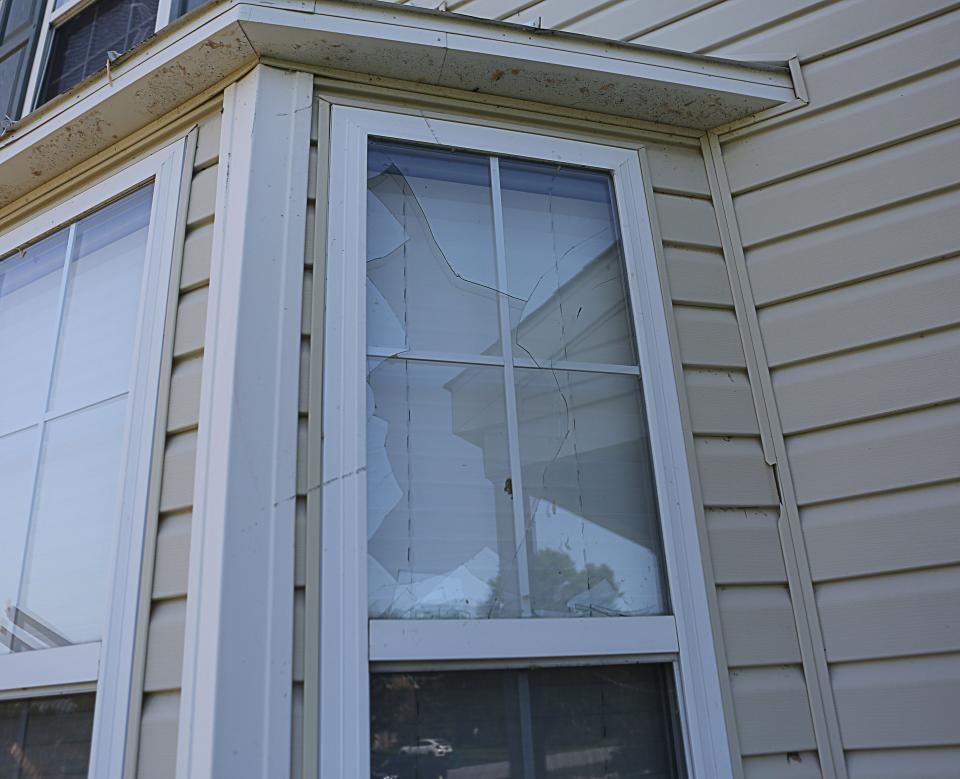
We know it’s hard, but it might finally be time to part with those air conditioners.
Failing to close your storm windows completely is a sure way to invite streams of air to funnel through small cracks.
“Those interior windows, you always want to keep closed,” said Mathew Himmelein, state monitor for the Department of Natural Resources and Environmental Control’s Weatherization Assistance Program. “No matter how well you try to insulate them, there’s always air that gets through.”
Have snow supplies handy
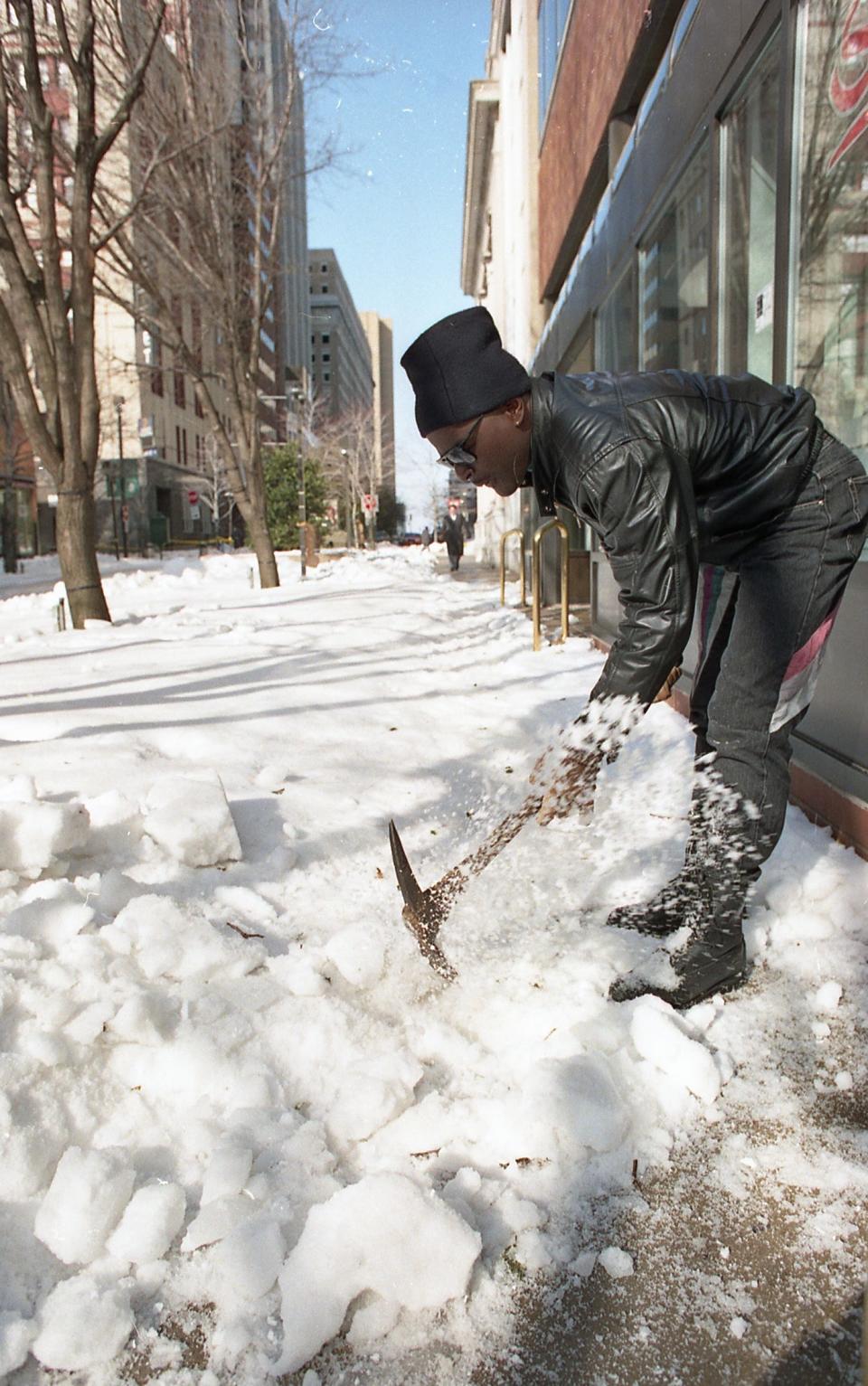
Although Delaware hasn’t received much snow in recent years, it’s better to be safe than sorry when it comes to digging out from a snowstorm.
Locate your shovels, pet-safe sidewalk salt, ice scrapers and snowblowers and put them in an easily accessible location ahead of winter storms. The last thing you need is to be stuck scraping off your windshield with your hands before work or digging out your front door with the nearest — and most likely least-efficient — object you can find.
Stay on top of home sealing, insulation
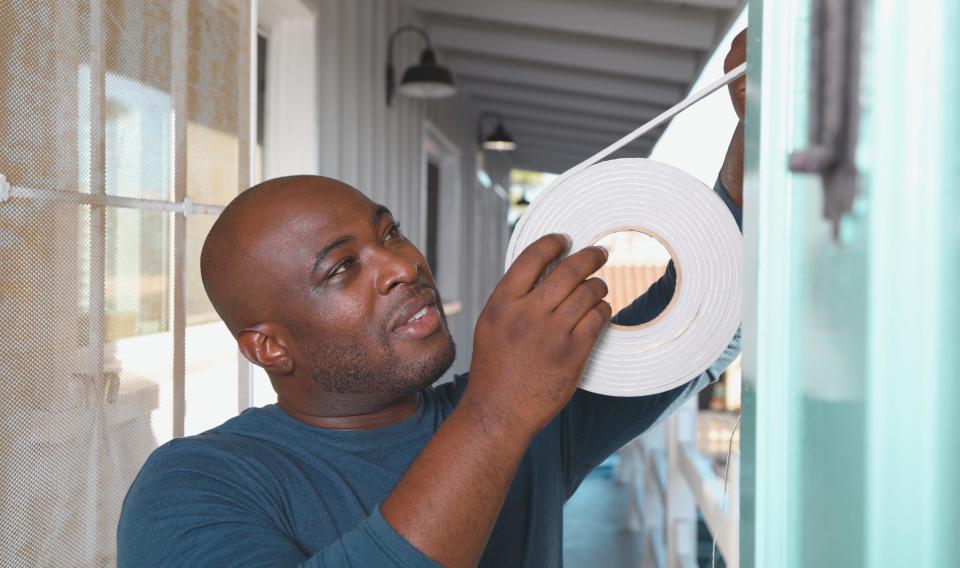
There are multiple ways exterior air can make its way into your cozy home. To avoid this, be sure your thermal boundaries — walls, ceilings, floors and roofs — are sealed tightly.
“We always recommend folks have an insulated attic access door or hatch that doesn’t allow wind to move in from the outside to the inside,” said Himmelein.
Keeping your roof in good shape also will prevent leaks and interior water damage.
Weather strip doors
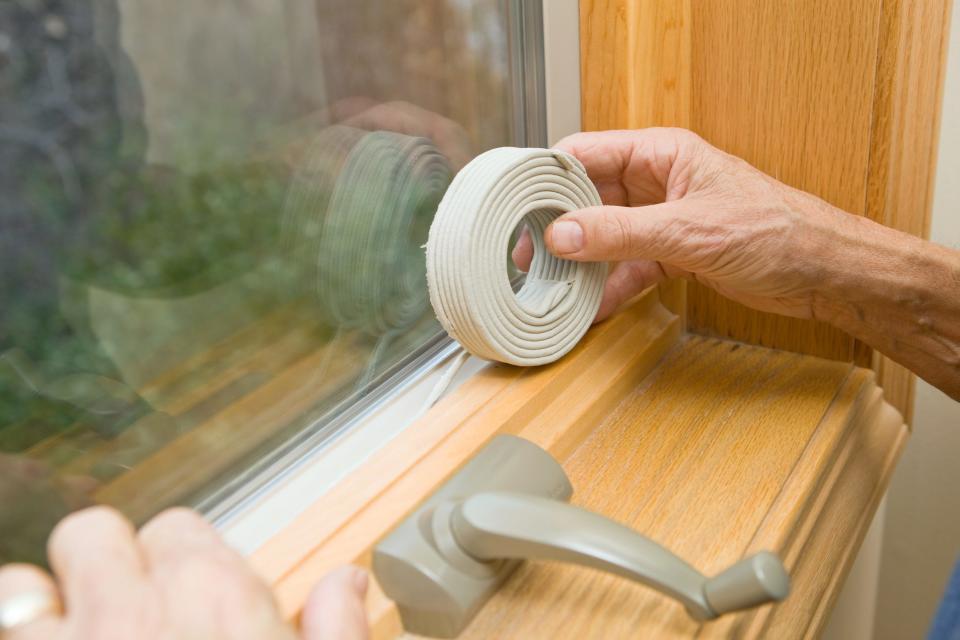
Weather stripping doors and using a door sweep are great protective measures against exterior air, especially when it comes frigid winter days.
“One of the largest savings in homes is to ensure that windows and doors and such are closed at all times,” said Himmelein. “When you allow that air in in the winter, it makes your heater work a heck of a lot more.”
Weatherstripping typically saves households about 30 percent on heating costs, according to Himmelein, and is useful year-round when it comes to keeping hot air out of your air-conditioned house during the summer.
Himmelein also recommends insulating after air-sealing. For qualifying applicants, this is a service DNREC’s Weatherization Assistance Program can help with.
Drain pipes for outdoor hoses and water sources
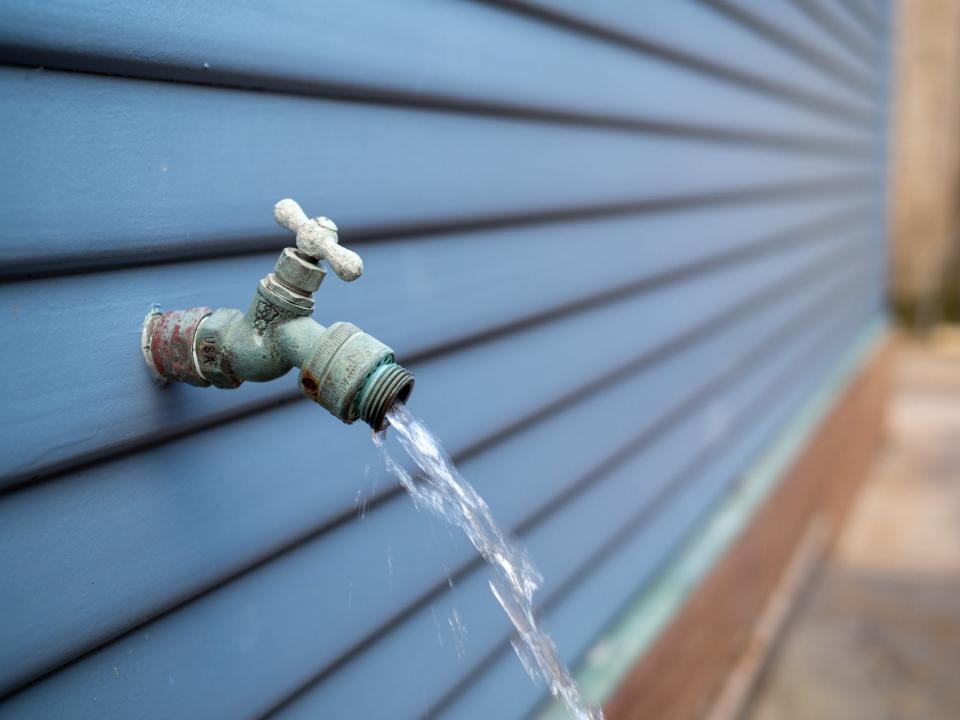
If you have an outdoor water faucet, sprinklers or an irrigation system, those need to be drained to keep them from freezing and bursting.
Himmelein also recommends checking to see if you have any uninsulated pipes in areas of your home that are not heated during the winter. If so, you can purchase pipe wraps for extra insulation and protection.
Inspect your gutters
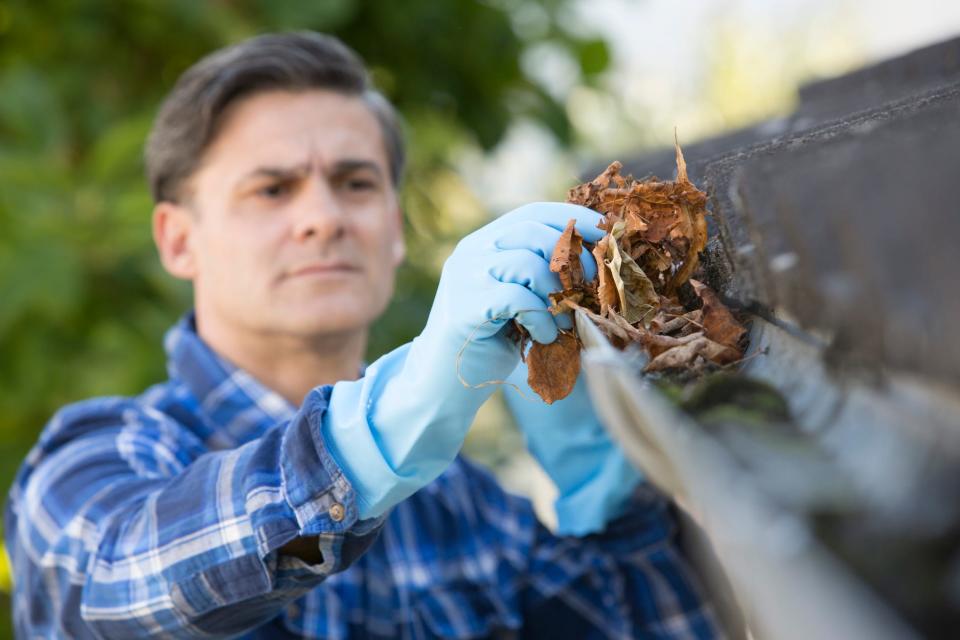
Sprouting blooms in spring and falling foliage in autumn are recipe for clogged gutters. Before snowstorms become routine, make sure your gutters are free of debris and in good shape.
If your gutters remain bogged down with dead leaves and other objects, water can overflow and settle around the foundation of your home, leading to water damage from basement flooding, the growth of mold or cracks in your home’s foundation — all problems that come with a hefty price tag to fix.
Cleaning your gutters ahead of winter prevents ice and snow from building up throughout the season and minimizes the chance of your gutter pulling away from your house, according to Lowe’s.
It’s also a good habit to start checking your gutters twice a year — once in spring and again in the fall — and before and after heavy rainstorms.
Take care of shrubbery, tree limbs
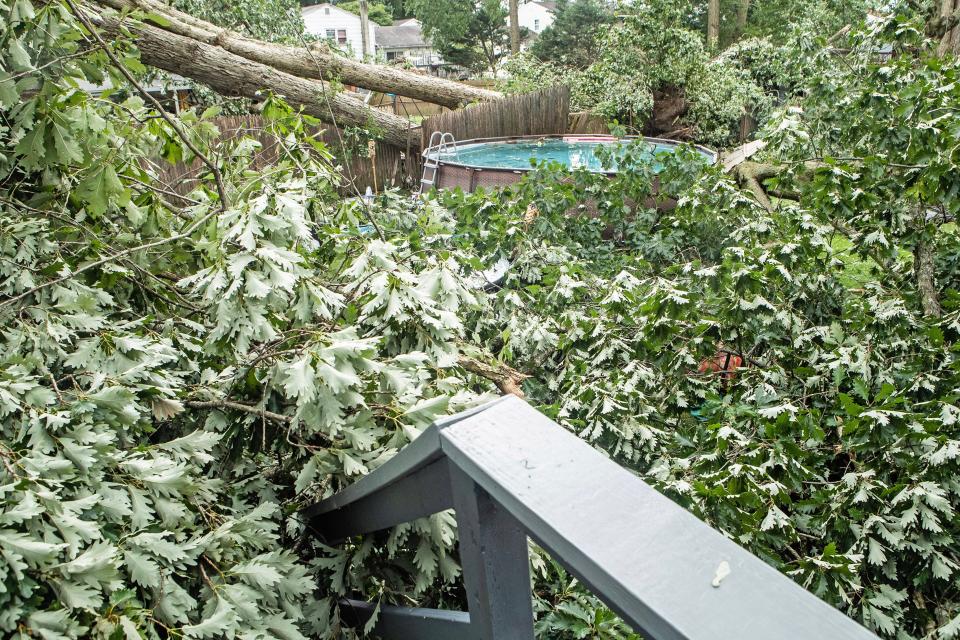
After new growth from spring and summer, you should inspect shrubs and trees in your yard for wayward limbs that could pose a threat during a storm.
If tree limbs are hanging over a home, they can easily damage the roof during a storm, said Himmelein.
If dead trees or dead tree limbs remain intact, winter conditions can freeze them, blow them into a window or onto your house or cause them to unexpectedly fall to the ground and seriously injure someone.
Equip your home with smoke alarms, carbon monoxide detectors
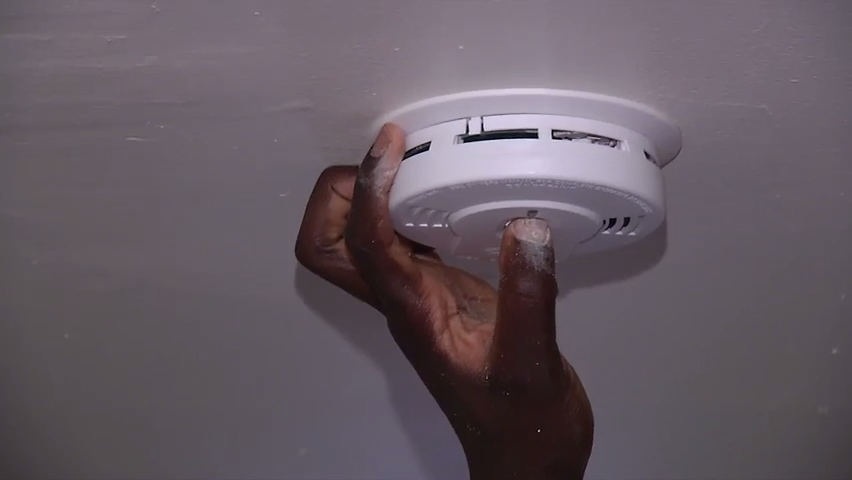
Cold weather means many people are using a variety of heat sources to keep their homes toasty, and unfortunately, these sources can release carbon monoxide or cause a fire.
It’s important to always have working smoke alarms and carbon monoxide detectors; double checking the batteries and function of these systems ahead of winter is recommended.
“Having a smoke alarm and carbon monoxide detector on each floor of the home, and sometimes outside of each bedroom, is always recommended,” said Himmelein, who added that some cities have their own regulations for these systems.
If you do not have a smoke or carbon monoxide detector in your home, many fire companies offer these devices for free. You also can contact your municipality for information about free devices and installation programs.
Check your HVAC system
Your HVAC system works diligently year-round to keep your family comfortable, and because of this, it may be due for annual cleaning and tune up to keep it in working order.
For people cooking with propane or natural gas, your exhaust fan should be on at all times when you’re cooking during the winter, said Himmelein.
The exhaust fan can be directly in your kitchen or in a bathroom nearby.
Watch out for disrupted duct work
DNREC’s Weatherization Assistance Program serves many individuals in modular and mobile homes and finds that disrupted ducts are a big issue, according to Himmelein.
Issues with ducts can lead to a variety of impacts that cause discomfort to those in the home. Ahead of the colder temperatures, review your duct work to make sure everything is properly functioning. If something looks amiss, call an expert to get it checked out.
ICYMI: Delaware farms and SNAP benefits at risk with delayed farm bill
Keep chimneys and fireplaces clear
For a home with a chimney or a fireplace, Himmelein urges people to check the flue (a duct for smoke and waste gases) and clear the area before lighting any fires.
Chimneys should be thoroughly inspected for any cracks or gaps, to avoid carbon monoxide entering your home, and a chimney cap is needed to prevent rain and downdrafts and prevent animals from nesting. Himmelein also recommends getting a draft guard or similar device to prevent drafts from going into your home.
If you’re using firewood, wood should be stacked as far away from your home as possible to reduce fire hazards. Certain wood types may be better than others for wood-burning fireplaces, and all firewood should be dry and seasoned for at least a year before use to minimize smoking, produce more heat and burn more efficiently, according to Full Service Chimney.
Weatherization Assistance Program
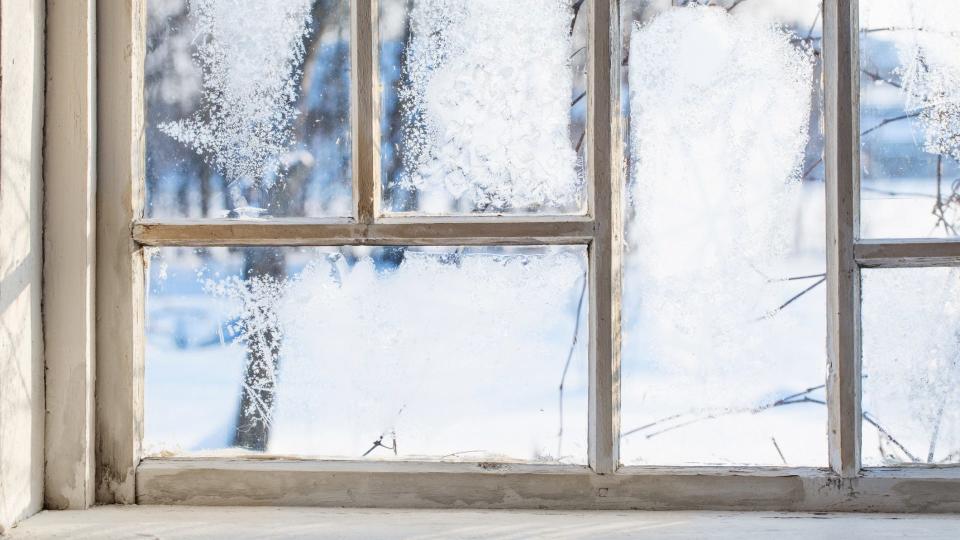
The Department of Natural Resources and Environmental Control offers a Weatherization Assistance Program through the Division of Climate, Coastal and Energy to help low-income households fix leaky homes with drafty doors or windows, and poorly insulated walls, pipes and crawl spaces.
Professionals from the program assess each home and provide weather-stripping, energy-efficient light bulbs, insulation and other energy-saving measures free of charge, such as:
Air sealing, caulking, glazing and crack patching
Replacing broken glass
Sealing heating and cooling ducts
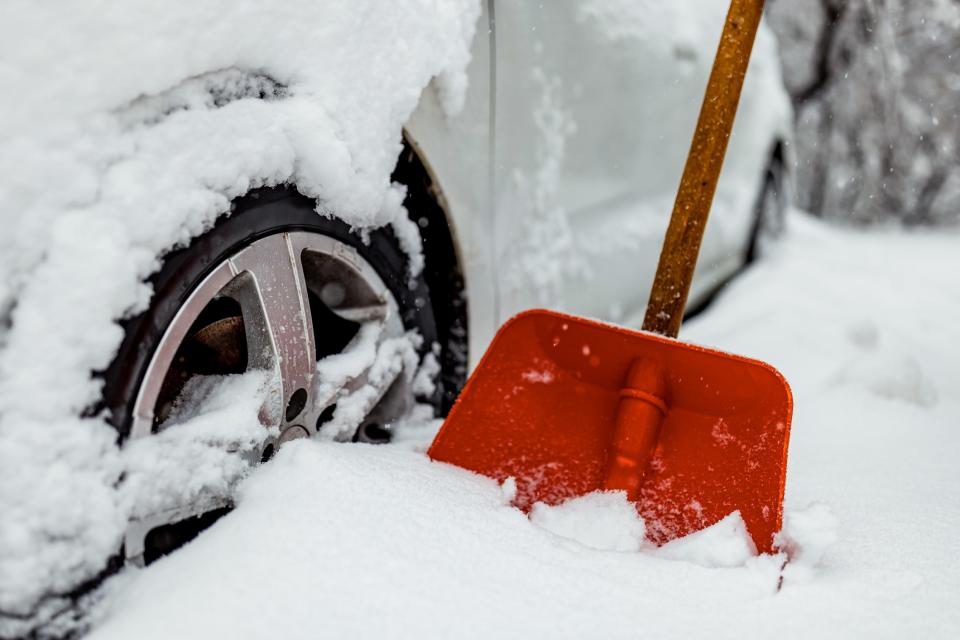
The program also can cover one heating system maintenance check, which is recommended for homeowners to perform once a year.
The Weatherization Assistance Program does not install, service or repair air conditioners or replace windows, doors or home furnaces.
If you are interested in solar energy for your home, DNREC’s Low-to-Moderate-Income Solar Program offers funding for potentially free or reduced services.
To apply for the Weatherization Assistance Program, contact the Energy Coordinating Agency at (302) 504-6111 to set up an appointment. If you have questions, call (302) 735-3480.
Got a tip or a story idea? Contact Krys'tal Griffin at [email protected].
Heating bills could be lower this year: Delmarva Power announces a decrease in home heating bills for customers this fall, winter
Fire prevention: Tips for preventing house fires, keeping your home safe and more, from American Red Cross
This article originally appeared on Delaware News Journal: How to prepare your home for cold weather, winter ahead of first storm